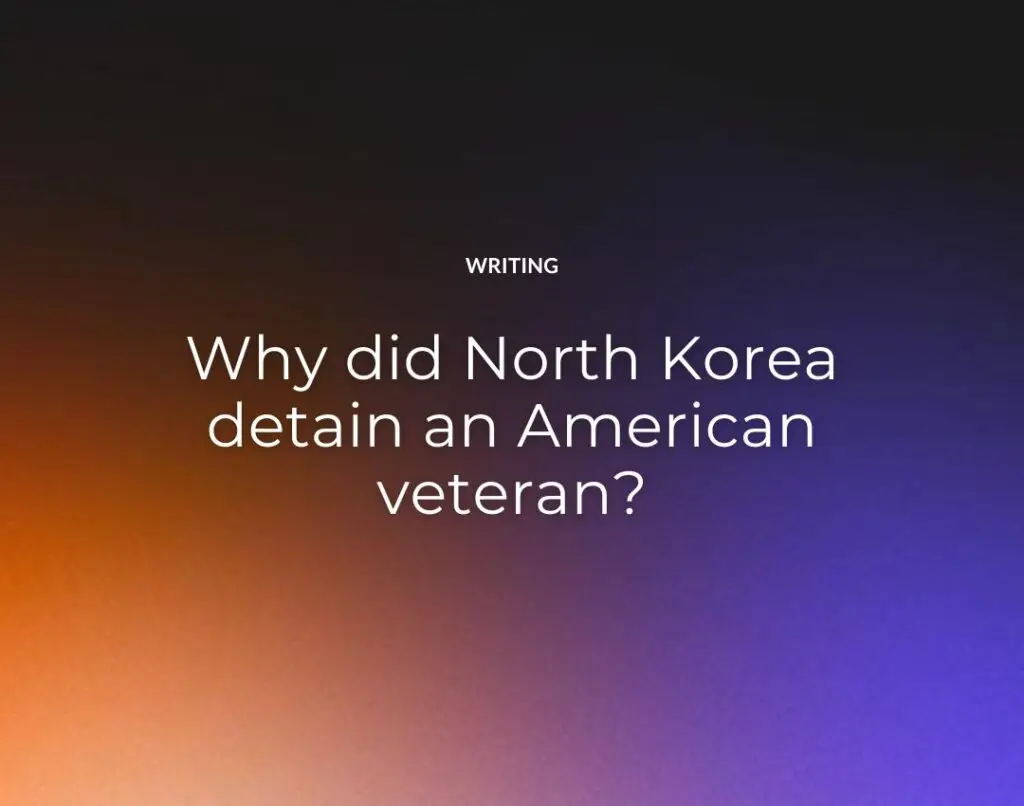By Geoffrey Cain
PRI’s The World
Nov 21, 2013
SEOUL, South Korea — For North Korea watchers, the news is mysterious and the motives unknown.
On October 26, an 85-year-old Korean War veteran from Palo Alto, California, became the second American detained in the past year in the world’s most reclusive state.
The grandfather of two, Merrill Newman, was traveling legally on a nine-day, government-guided tour of the country. As he was preparing to depart on an airplane, authorities reportedly boarded and took him away, his son told The New York Times today.
This news didn’t get out until this week, when rumors were circulating around Seoul and Washington about the arrest of an unknown American citizen.
On Monday, North Korea watchers raised further questions when the State Department — which has always urged caution when visiting North Korea — unexpectedly issued a vague blanket warning to American citizens, suggesting that Americans faced the threat of “arbitrary arrest” should they travel to the garrison state.
It’s the first time Washington has put out such a strong public advisory since 1995, the year North Korea opened to tourism.
The warning raised eyebrows.
On Wednesday, Merrill’s son confirmed the rumors from his home in California. The State Department, however, would not confirm the details of the arrest to GlobalPost.
North Korea takes a hostile stance toward the US government, and has detained at least six Americans for an assortment of violations in the country since 2009. But in many ways, this incident is unprecedented, mysterious, and comes at an odd time, explains Andrei Lankov, a North Korea expert at Kookmin University in Seoul.
That’s because American detainees are typically caught straying across the North Korean border, sometimes by accident. Or they’re found to be proselytizing their religion, as in the case of Bae.
This episode is something of a departure.
The last time an American was detained under similar circumstances — while traveling legally inside the country on a normal visa — was in the 1960s, Lankov said. All recent detainees have, moreover, been of Korean or Asian descent, while Newman is Caucasian.
Adding to that, North Korea has been trying to boost its tourism profile recently through a number of whimsical, high-priced ski and beach resorts. Through a fledgling tourism industry, the cash-strapped nation can raise much-needed foreign currency and bring some semblance of national prestige.
That means the government, for all its strangeness, wants to keep its foreign visitors happy, Lankov said.
Which raises the possibility that Newman committed some innocuous infraction North Korea considers egregious.
But what?
As is often the case in North Korean affairs, one can only speculate. The state-run Korean Central News Agency (KCNA) has yet to weigh in on the arrest of Newman. Usually, English-language propaganda mouthpieces put out announcements when the regime ferrets out a prominent so-called “enemy of the state.”
The list of potential infractions is long.
visitors can take heat for damaging a portrait of the nation’s deceased and revered former leaders, Kim Il Sung and Kim Jong Il.
Or there’s always the possibility that he was carrying Bibles and spreading religious messages, one missionary told GlobalPost by telephone from the North Korean-Chinese border. The source asked not to be named, citing the watchful eyes of Chinese and North Korean authorities.
“The North Korean government does crazy things, but I haven’t heard about them arresting visitors, even if they are the enemies like Americans, unless they do something hated under the government’s rules,” the missionary said. “The government actually tries to put on a good face and promote its national culture when the foreigners come.”
Newman’s son, speaking to the New York Times, raised the possibility that the veteran made a “hiccup” when he started discussing the Korean War.
It’s a sensitive topic in North Korea, which has re-branded the civil war of 1950 to 1953 the “Great Fatherland Liberation War.” But even talking about the Korean War hasn’t led to the arrest of an American in recent years.
Given the lack of a clear motive for the arrest, Newman’s detention could most closely resemble the 1998 detention of Korean American businessman James Chin-kyung Kim, who traveled to the hermit state on food aid missions and, without much of an explanation, was suddenly accused of being a CIA spy.
Often, when North Korea arrests an outsider, the specific nature of the accusation is published somewhat quickly — as in the case of Kenneth Bae in 2012 and two American journalists arrested in 2009.
Looking back at the list of formerly detained Americans, the details of this detention are so far inexplicable — along with regime’s silence on the matter. As with anything related to North Korea, it’s hard to get inside the minds of its secretive inner circle – which is currently even more obtuse than usual.
The article was originally published in PRI’s The World
See Also:





